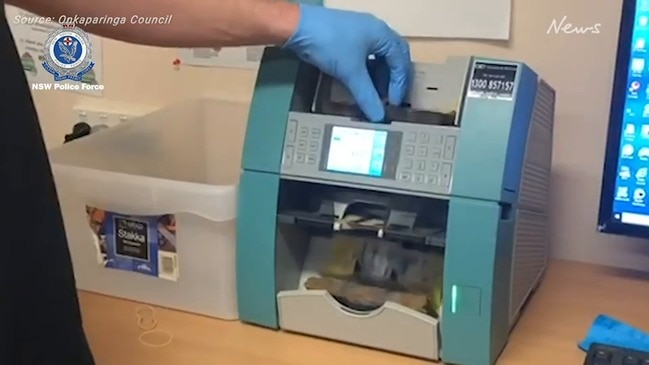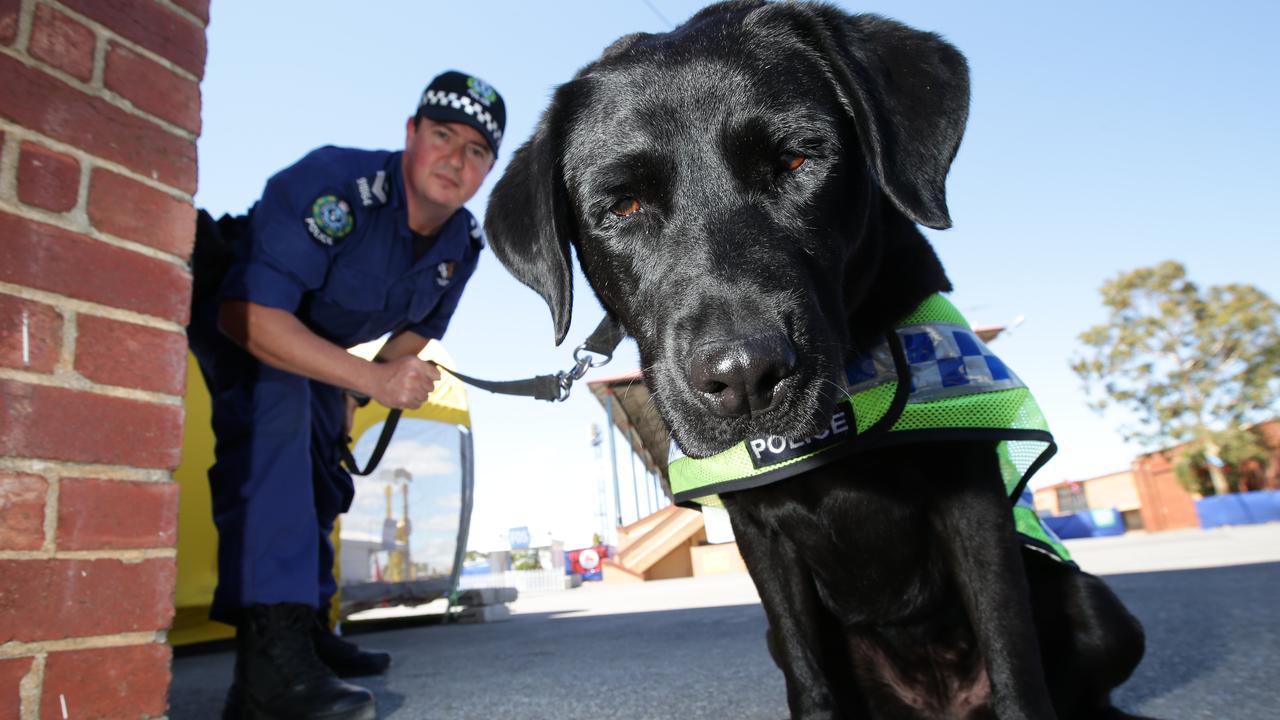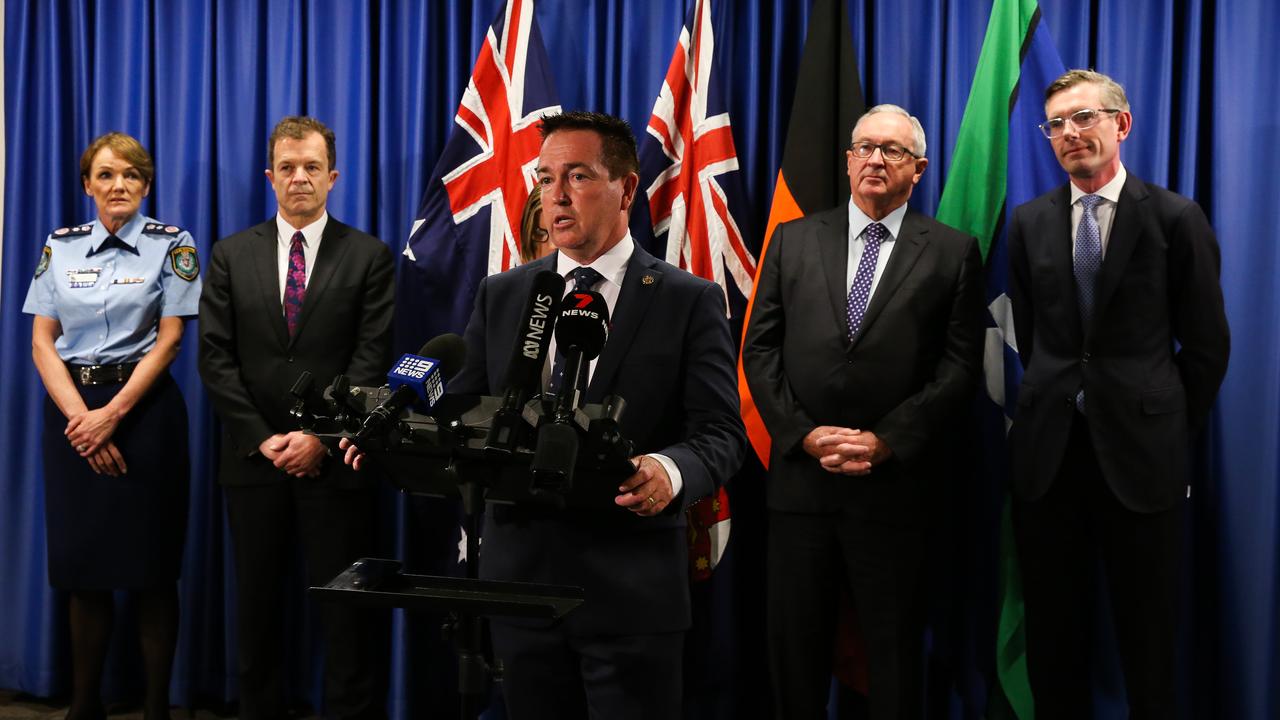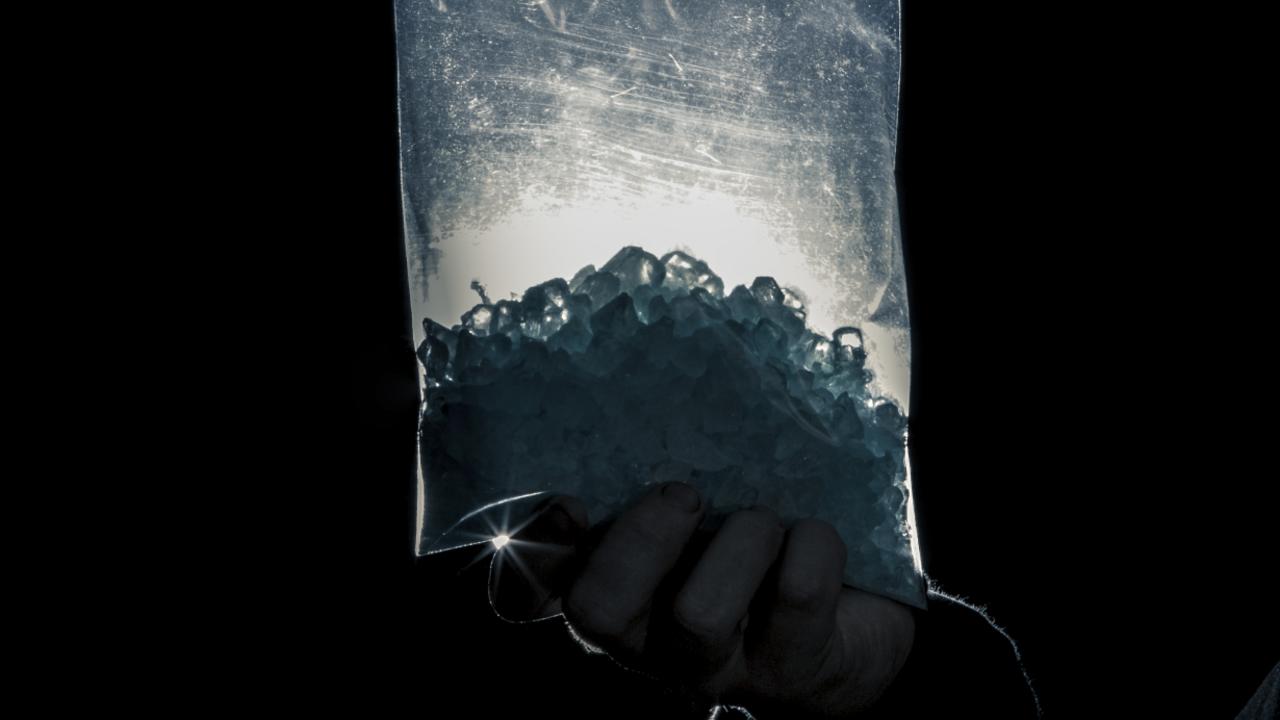NSW government issues response to 2020 ice inquiry, will keep sniffer dogs
With summer around the corner and massive music festivals being planned, the NSW government has made a big call on pill testing and sniffer dogs.

NSW Premier Dominic Perrottet has said his government will not decriminalise low-level personal drug use, allow pill testing at festivals, or stop the use of sniffer dogs, nixing some of the key recommendations of a landmark drugs inquiry.
Mr Perrottet announced his long-awaited response to the 2020 ice inquiry on Wednesday, vowing a “zero-tolerance” approach to drugs.
“I want to make it very clear that the NSW government does not support the recommendation to decriminalise illicit drugs,” he said.
“Drugs have no place in our society, but we know that those who have been caught up in taking drugs need care, support.”
However the government says it supports “in principle” the idea of a pre-court diversion program where low-level drug users can be issued with a criminal infringement notice instead of going to court.


Whether that scheme goes ahead will depend on the opinion of the NSW police commissioner and the state’s chief health officer, who have been given a June 30, 2023 deadline to give their advice.
“The proposed scheme will look something like this: there will be two criminal infringement notices, a maximum of two, they‘ll be issued at the discretion of the police,” Attorney-General Mark Speakman said.
“So police will have discretion within law to issue those notices. There will be carve-outs for certain offenders, so someone who’s got a criminal record as a as a drug dealer, they won’t be getting a criminal infringement.
“The offender will be able to avoid the fine that’s associated with that criminal infringement notice, if they undergo the telehealth program or other programs associated with that notice.”

Mr Perrottet said the government supported 86 of the report’s recommendation, and noted 14 others.
The recommendations the government rejected were:
- Decriminalising drugs
- Removing a ban on possessing ice pipes
- Allowing more supervised drug consumption services
- Establishing drug testing centres, including at music festivals
- Allowing NSW Health to develop guidelines for drug testing centres
- Stopping the use of sniffer dogs at music festivals
- Issuing new guidelines to limit police strip searches
- Making prison drug treatment services the responsibility of Justice Health
- Piloting a needle and syringe program in prisons
In the case of the recommendation to issue new guidelines on strip searches, the government noted it had already developed a new manual for officers.
Mr Perrottet also said the government would commit nearly $500m to help combat drug issues.
Out of that money, $358m will “address treatment gaps and improve health and social outcomes”, and the rest will go towards justice initiatives.
The report, which cost $11m to produce, had sat without a government response for more than two years.
Labor met the government's response with little fanfare, issuing a set of written comments by MPs instead of calling a press conference.
“The Government first received this report 32 months ago, and it has taken years for the government to provide a response,” Labor‘s health spokesman Ryan Park was quoted as saying.
Labor welcomes the initiatives announced by the Government today including $500 million over four years to fund a range of rehabilitation services and justice initiatives and expansion of the Drug Court in Sydney.“
Opposition Leader Chris Minns was not among the MPs who commented.

Greens MP Cate Faehrmann slammed the government for taking so long to respond, and said the decision to await more advice on whether to go ahead with pre-court diversion was a way to avoid the matter becoming an election issue.
“What do they do, but keep down the road kick the can down the road,” she said.
“What the government has done is delayed, delayed, delayed, because they are too cowardly to look at the evidence and to act.”
Drug reform advocate Annie Madden, who is the executive director of Harm Reduction Australia, said the response was “disappointing”.
“Governments often say they need more evidence before they can act on things, but all the evidence here is in, it‘s all there,” she told NCA NewsWire.
“We‘ve had a coroner’s inquiry into festival-related deaths, and this massive report, that was released more than two years ago.
“Other governments are looking into more progressive responses to these issues, but in the country‘s largest state they’ve ignored the evidence.”
The inquiry heard evidence during 47 days of hearings, including from 35 people who shared their experience of illicit drug use, and received 250 submissions.

It made 109 recommendations, including “implementing a model for the decriminalisation of the use and possession for personal use of prohibited drugs”.
The recommendation called for adopting a health-based approach to low-level personal drug use, rather than criminal penalties.
That recommendation in particular has been a sticking point for NSW ministers, and is believed to have delayed the response.
An interim response from the government in March 2020 addressed a small number of the recommendations aimed at harm minimisation.
Mr Speakman said earlier this year he was “disappointed” at the slow pace in responding to the inquiry, which recommended widespread reform in the health and justice response to drug problems in the state.
“We haven‘t spent that sort of money to have a detailed expert report, that took an enormous amount of evidence from experts, to sit on the shelf,” Mr Speakman said.
“We intend to act, and I’m disappointed that we have not been in a position to provide our comprehensive response.”
Read related topics:Dominic Perrottet



